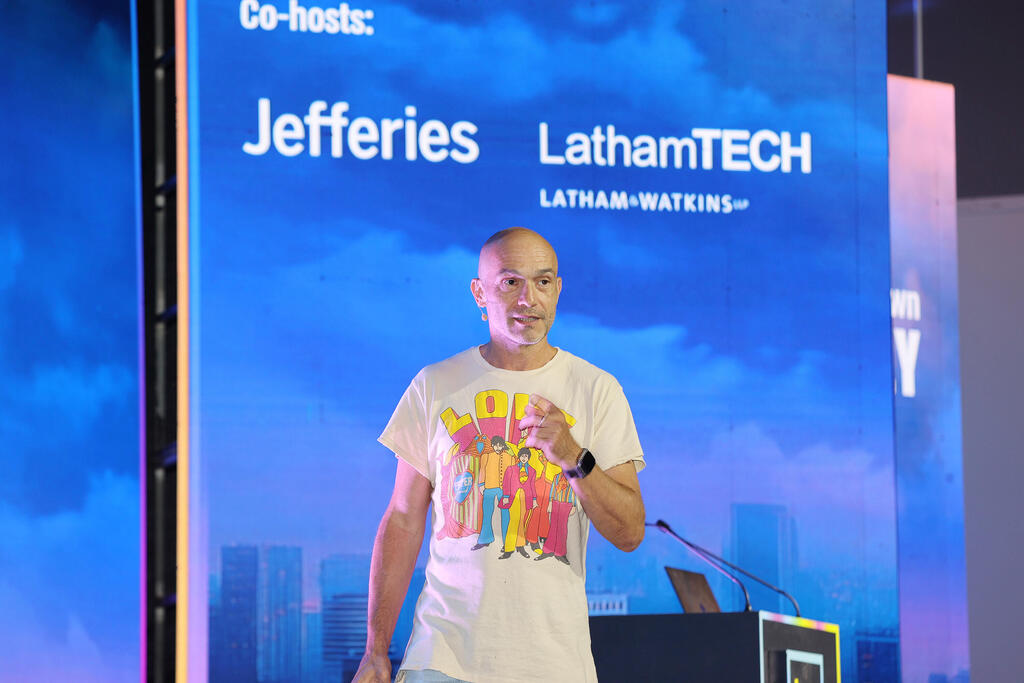
Gigi Levy-Weiss: “The era of just saying ‘I have AI inside me’ to raise money is over”
Investors are demanding real returns, strong margins, and defensible business models, according to NFX’s General Partner.
Artificial intelligence may dominate headlines and boardroom agendas, but Gigi Levy-Weiss sees cracks forming beneath the surface. The NFX General Partner cautions that today’s venture capital climate is defined by bubbles, regulatory headwinds, and unsustainable energy demands. “Things that seem amazing today,” he warned at EY Israel's Journey Conference, “could turn out to be fine in another company’s model tomorrow.”
Since 2022, Levy-Weiss said, nearly all the improvement in venture capital activity has centered on artificial intelligence. Funding has flowed heavily into a small group of large, well-known companies, leaving less room for new entrants. “Artificial intelligence is currently drawing most of the budgets that were intended for innovation,” he said. For many startups, that means navigating an environment where enthusiasm is high but genuine opportunities are increasingly difficult to identify.
Levy-Weiss argues that the most obvious opportunities, chips, data centers, and model developers, are effectively closed to new players. Instead, he sees promise in the supporting layers: applications, tools, and infrastructure. “This leaves us with applications and tools companies, cyber, development tools, or in other words ‘picks and shovels,’” he said. “In this, Israel has a lot to offer. It has been that way historically and is still true today.”
Enterprise software, in particular, could be vulnerable to disruption. “Is it possible, for example, to invent a new ERP system based on AI? Could it be better than one that Oracle develops?” he asked. “That is why we are looking for tools that sit on these systems.” He pointed to legal services as one sector where artificial intelligence could make a meaningful difference.
For smaller businesses, the demands are more pragmatic: AI agents designed to replace employees. Consumers, meanwhile, represent an entirely different set of opportunities, where Levy-Weiss expects “a new wave of services that did not exist before.”
If the opportunities are shifting, so are the expectations. Startups that hope to attract capital from NFX and similar firms face a much higher bar. “A real return on investment within three to six months” is now the benchmark, Levy-Weiss said. Ventures must also build unique defensibility, through proprietary data, distribution, or differentiated technology, rather than layering products onto existing models such as ChatGPT.
Profit margins are another pressure point. “We are looking for profit margins like in the software field, that is, over 60%. We are no longer satisfied with the lower profitability rates that characterized artificial intelligence until recently,” he explained. Regulation, especially in Europe, is also forcing companies to prepare for compliance at earlier stages than in previous technology cycles.
Behind Levy-Weiss’s caution is a concern that the surge of capital into AI is unsustainable. “We need to be careful of a bubble,” he said. “It is already clear that some of the money that has entered the field may be lost.” He pointed to two structural risks that could reshape the sector in the coming years: regulatory limits and energy consumption. “If the issue is not addressed, there will not be enough for everyone and the issue will become a limitation for some players.”
The effect, he argued, is that the most prominent AI companies are beginning to resemble traditional enterprises, subject to the same constraints of profitability and scale. “This is still an amazing time,” he said, “but the era of just saying in a presentation, ‘I have AI inside me,’ will no longer be enough to raise money from investors. In 12–18 months, we will start to see pressure on value and prices due to regulatory and energy restrictions, and we will also start to see mergers and acquisitions.”















